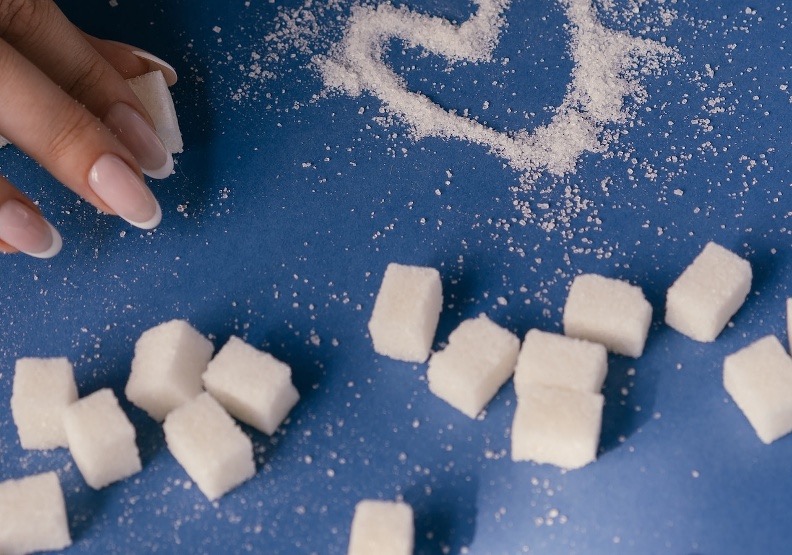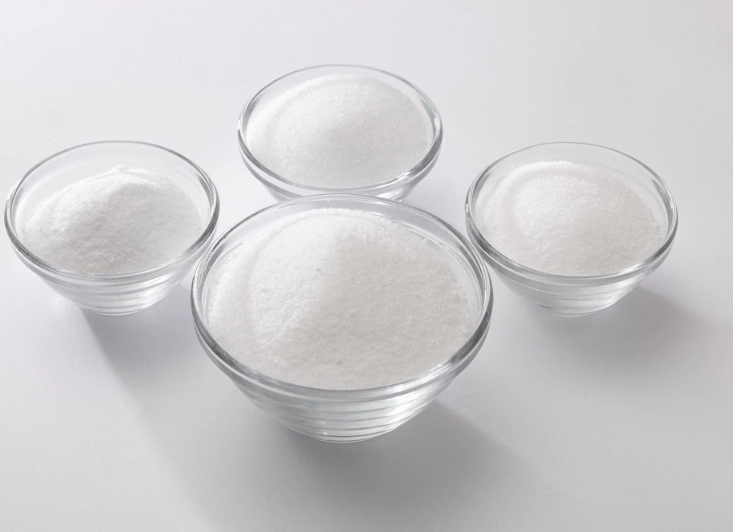Views: 222 Author: Sara Publish Time: 2025-08-17 Origin: Site








Content Menu
● Aspartame and Diabetes: Safety and Blood Sugar Control
● Benefits of Aspartame for Diabetics
● Metabolism of Aspartame in the Body
● Potential Risks and Controversies
● Aspartame Compared to Other Sweeteners for Diabetes
● Regulatory and Research Status
● Practical Tips for Diabetics Using Aspartame
● FAQs About Aspartame and Diabetes
>> 1. Can diabetics consume aspartame without affecting blood sugar?
>> 2. Are there any side effects of aspartame for people with diabetes?
>> 3. Is aspartame better than other artificial sweeteners for diabetes?
>> 4. What is the recommended daily intake of aspartame for diabetics?
>> 5. Are products containing aspartame always safe for diabetics?
Aspartame is a widely used artificial sweetener that has been extensively studied for decades. For individuals with diabetes, especially those managing blood sugar levels, the question "Is aspartame safe for diabetics?" is crucial. This article explores the safety, benefits, potential risks, and scientific perspectives on aspartame consumption for people with diabetes.

Aspartame is a low-calorie, artificial sweetener approximately 200 times sweeter than sugar. It is composed of two amino acids, L-aspartic acid and L-phenylalanine, naturally found in many foods. Used in a variety of foods and beverages, from diet sodas to sugar-free candies, aspartame is available under brands such as Equal, NutraSweet, and Sugar Twin. The U.S. Food and Drug Administration (FDA) has approved aspartame for use based on over 100 studies confirming its safety for the general population, except for individuals with phenylketonuria (PKU), a rare genetic disorder.
Aspartame has a glycemic index of zero, meaning it does not raise blood glucose levels. Studies indicate that aspartame does not have a significant impact on blood sugar or insulin levels, making it a safe alternative sweetener option for people with diabetes. The FDA's acceptable daily intake for aspartame is 50 milligrams per kilogram of body weight, a level far below what has shown toxicity in animal studies.
However, while aspartame itself is safe, products containing it may have other ingredients, such as refined flour or additives, which could impact blood sugar. Therefore, diabetics should always check food labels thoroughly.
- Aspartame provides sweetness without the calories and carbohydrate load of sugar.
- It supports blood sugar management by replacing sugar in sweets and beverages.
- It can help reduce calorie intake while still satisfying a sweet tooth.
- Approved for use in children, pregnant, and breastfeeding women, as well as diabetics, based on current evidence.
- Helps in weight management by reducing overall sugar consumption, which can indirectly benefit blood sugar control.
- Adds versatility to the diet as it can be used in baking and cooking under certain conditions.

Once consumed, aspartame is broken down into its components: aspartic acid, phenylalanine, and methanol. These are naturally present in many foods and are further metabolized by the body without accumulating harmful levels. Methanol is converted to formaldehyde and formic acid but in very small amounts that are considered safe. For people with diabetes, these metabolic processes do not aggravate blood sugar control or insulin response.
Some studies suggest that consumption of aspartame may lead to an increase in cortisol levels, potentially contributing to weight gain and insulin resistance, which are concerns for type 2 diabetes management. Aspartame metabolism may also affect gut microbiota and oxidative stress, although comprehensive conclusions have yet to be firmly established.
Additional concerns raised by some research include potential neurological effects, though no conclusive evidence directly links aspartame consumption to adverse neurological conditions in the general population. Since diabetes itself can affect the nervous system, some caution is recommended.
Because research is ongoing, some healthcare professionals remain cautious, recommending moderate use and emphasizing whole food nutrition alongside sweetener use. Excessive consumption of any artificial sweetener might have unknown long-term effects, so balanced dietary habits remain essential.
Diabetics have a variety of sweeteners to choose from, including natural ones like stevia and monk fruit, as well as artificial sweeteners like sucralose and saccharin. Aspartame stands out for its sweetness potency and low calorie content, making it effective in managing calorie intake while maintaining flavor. Unlike sugar, aspartame has no direct effect on blood glucose, unlike some sweeteners with a low but non-zero glycemic index.
Each sweetener has unique characteristics, and individual tolerance varies. For example, some people find sucralose or stevia better tolerated or preferred in taste. Therefore, diabetics may choose sweeteners based on personal preference, availability, and how well their bodies tolerate them.
Aspartame is globally approved by regulatory authorities, including FDA, the European Food Safety Authority (EFSA), and other international agencies, as safe for consumption by diabetics and the general population. Over decades, no definitive causal links to serious adverse effects have been consistently demonstrated. Yet, due to some conflicting data about metabolic and microbiome effects, further research is encouraged.
Organizations emphasize that when consumed within recommended limits, aspartame does not pose health risks for individuals with diabetes. Continuous monitoring of scientific evidence ensures standards remain up to date to protect public health.
- Always read labels carefully to ensure foods contain aspartame and check for other ingredients affecting blood sugar.
- Monitor blood glucose levels when introducing new sweeteners to understand personal response.
- Use aspartame as part of an overall balanced diet rich in whole grains, lean proteins, healthy fats, and fiber.
- Avoid excessive consumption of diet products, as they might contain other additives.
- Consult healthcare providers or dietitians to tailor sweetener use according to individual health needs.
Aspartame is considered safe for people with diabetes when consumed within established guidelines. It offers a low-calorie, zero glycemic index alternative to sugar, helping with blood sugar and calorie management. While some potential risks are noted in research, current evidence supports its use as part of a diabetes-friendly diet. Diabetics should remain vigilant about product ingredients beyond aspartame itself and consult healthcare providers for personalized dietary advice.

Yes, aspartame has a glycemic index of zero and does not raise blood sugar levels, making it safe for diabetics to consume within recommended limits.
While generally safe, some studies suggest aspartame may affect cortisol levels and gut microbes, which could potentially influence weight and insulin resistance. More research is needed.
Aspartame is one of several approved artificial sweeteners. Its safety and effects are comparable to others like sucralose and stevia, but choice depends on individual tolerance and preference.
The FDA recommends a maximum of 50 mg/kg body weight per day, which is well above typical consumption levels, ensuring a wide safety margin.
Not necessarily. Some aspartame-sweetened foods may contain other ingredients that impact blood sugar, so it's crucial to read labels and choose products carefully.
[1] https://www.healthline.com/health/diabetes/aspartame-diabetes
[2] http://money.finance.sina.com.cn/corp/view/vCB_AllBulletinDetail.php?stockid=301206&id=7370608
[3] https://www.webmd.com/diet/what-to-know-about-aspartame
[4] https://money.finance.sina.com.cn/corp/view/vCB_AllBulletinDetail.php?stockid=002286&id=10970144
[5] https://pubmed.ncbi.nlm.nih.gov/28571543/
[6] https://www1.hkexnews.hk/listedco/listconews/sehk/2025/0530/2025053000074_c.pdf
[7] https://www.mayoclinic.org/diseases-conditions/diabetes/expert-answers/artificial-sweeteners/faq-20058038
[8] https://q.stock.sohu.com/cn,gg,002286,11252103210.shtml
[9] https://www.cas.org/resources/cas-insights/aspartame-safe-landscape-artificial-sweeteners-and-sugar
[10] https://www.heysong.com.tw
